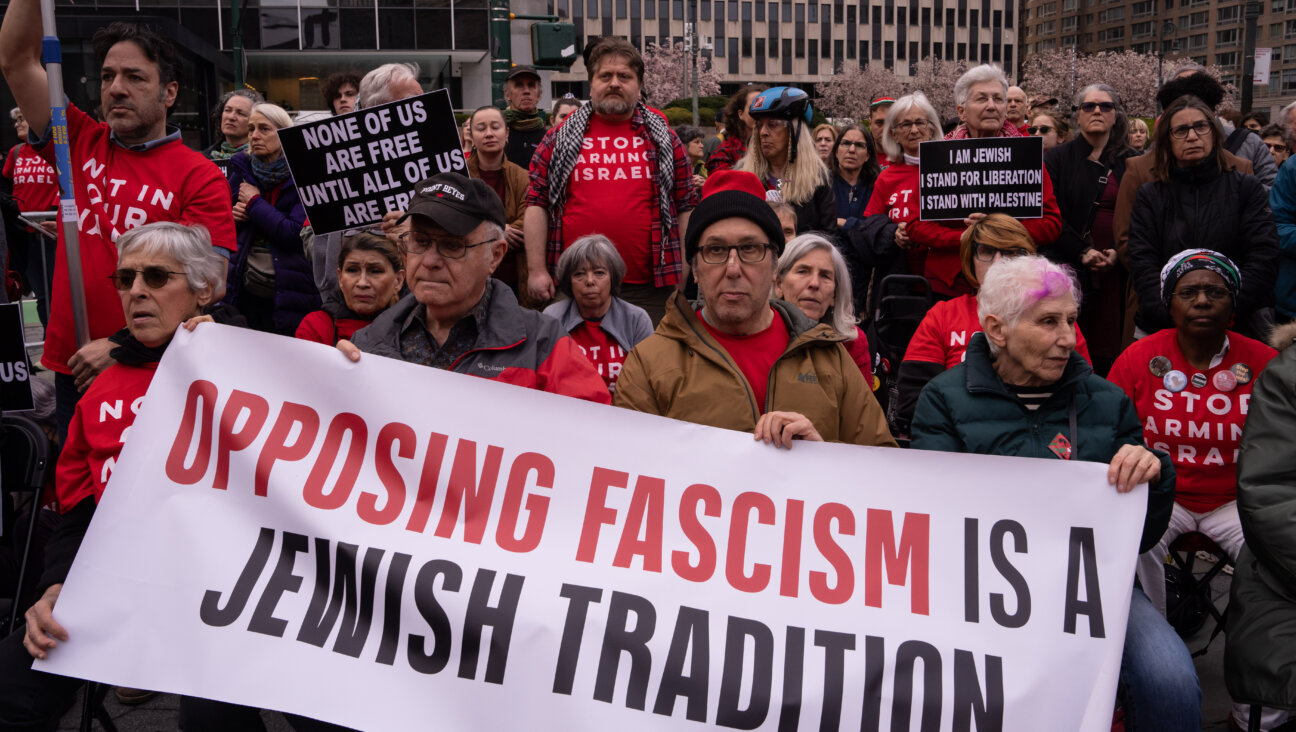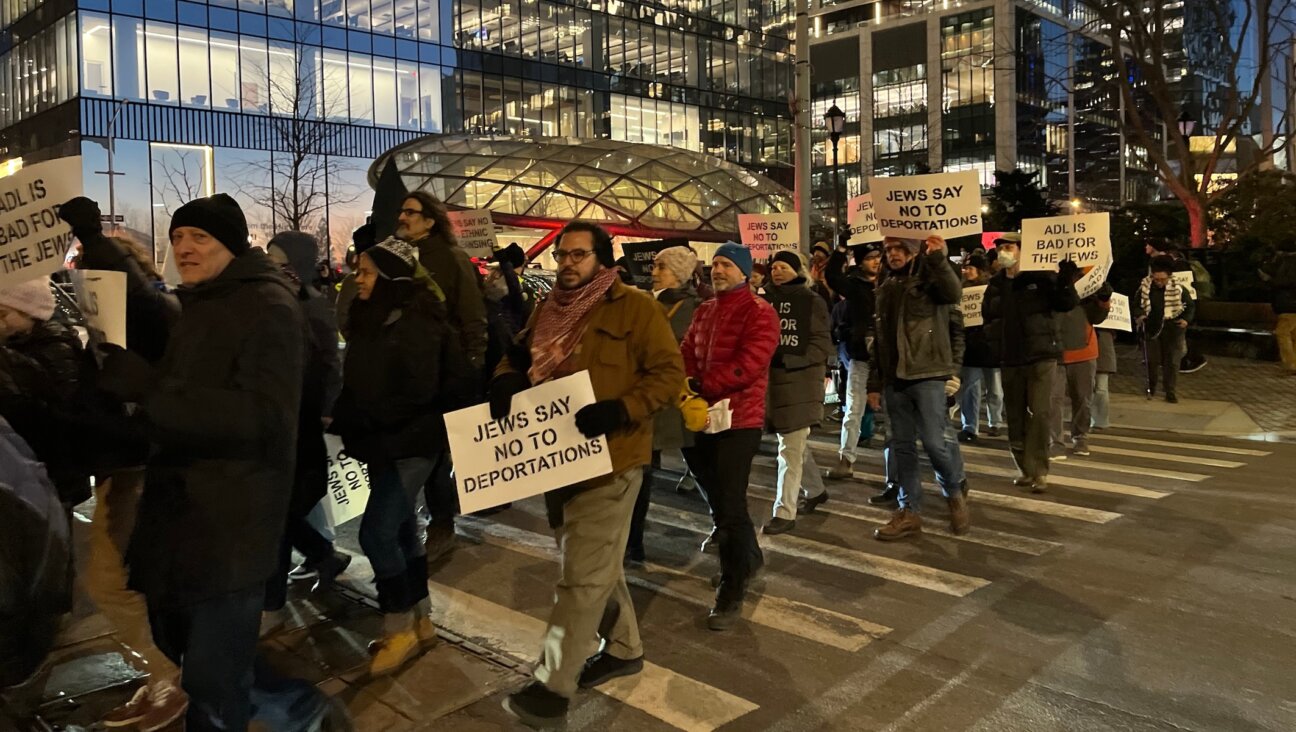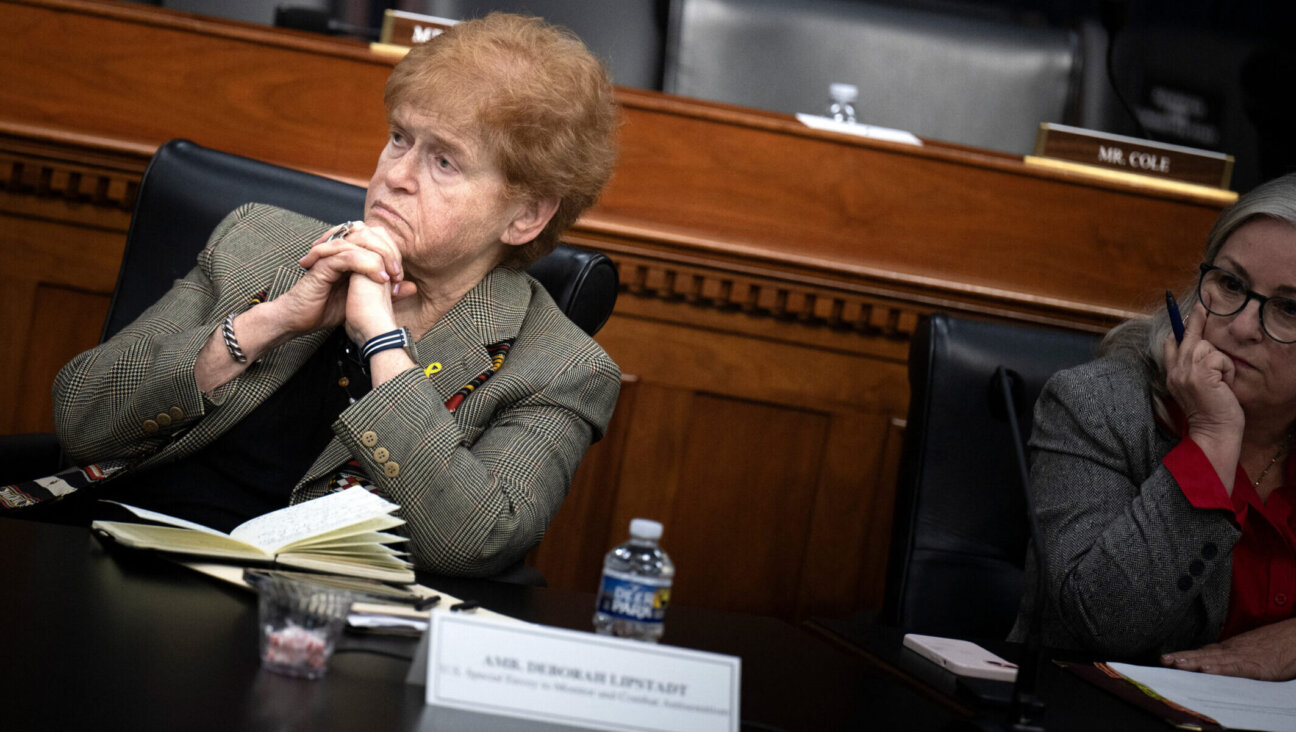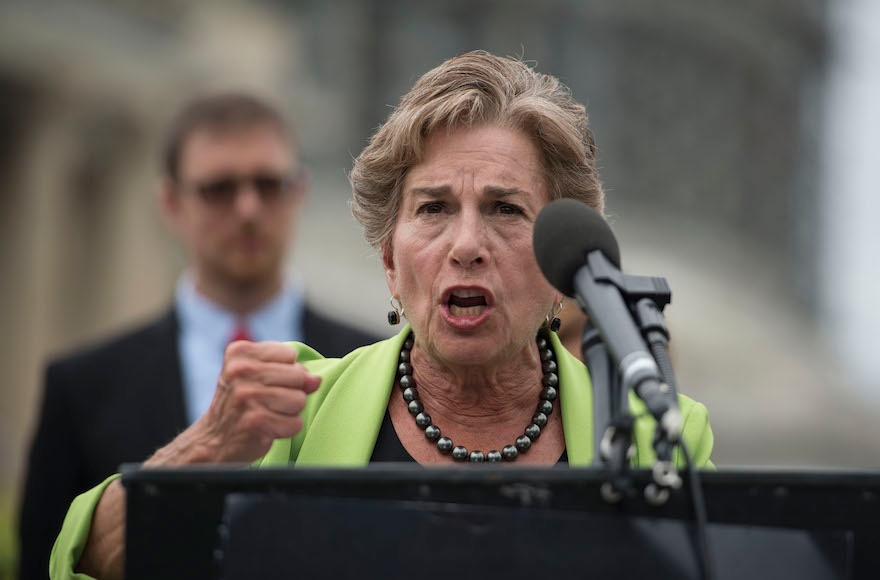Claims Conference Ombudsman Will Probe Botched Fraud Investigation
An ombudsman will investigate how top officials at the Conference on Jewish Material Claims Against Germany handled an anonymous letter that could have drastically reduced a multi-million dollar fraud at the organization.
Julius Berman, chairman of the Claims Conference, has faced growing calls from board members for an independent investigation into the 2001 letter, which warned that a handful of employees were submitting and approving fraudulent claims on behalf of themselves and family members.
Berman announced in May that a four-man committee would look into the matter. The committee’s chairman, Reuven Merhav, told board members that his committee has decided to refer the matter to the Claims Conference’s ombudsman Shmuel Hollander.
“The Committee decided to ask the Ombudsman’s Office…, being both independent and possessing the relevant expertise, to investigate the facts surrounding the 2001 letter,” Merhav wrote in a June 6 email.
Merhav added that the ombudsman will pass his findings to Merhav’s committee, which will in turn formulate its own recommendations. The committee’s report will be presented to the Claims Conference’s full board at its annual meeting, to be held in New York in early July.
The 2001 letter, which went into detail about who was responsible and how they could be exposed, was introduced into evidence during the recent trial in New York of three people implicated in the fraud.
Following receipt of the letter, top Claims Conference officials were involved in two investigations that raised further concerns about Claims Conference employees. However, it appears that no further action was taken against them.
The fraud is thought to have continued for about 15 years. By the time it was discovered, in 2009, thousands of ineligible people had received Holocaust payments totaling $57 million from the German government.
Thirty-one people, including more than a dozen former Claims Conference employees, pleaded guilty to or were convicted of fraud.
A spokesman for the German Ministry of Finance said the German government had only recently learned about the 2001 letter.
“This letter became public during the trial,” a ministry spokesman said. “It became also public only then, that the [Claims Conference] did conduct an internal investigation after receiving this letter, which did not provide any indication of fraud.”
The spokesman added: “This letter will now again be subject to a new investigation, carried out by an internal commission of the [Claims Conference] under the guidance of Reuven Merhav. We have to wait for the results of this investigation.”
Contact Paul Berger at [email protected] or on Twitter @pdberger
The Forward is free to read, but it isn’t free to produce

I hope you appreciated this article. Before you go, I’d like to ask you to please support the Forward.
Now more than ever, American Jews need independent news they can trust, with reporting driven by truth, not ideology. We serve you, not any ideological agenda.
At a time when other newsrooms are closing or cutting back, the Forward has removed its paywall and invested additional resources to report on the ground from Israel and around the U.S. on the impact of the war, rising antisemitism and polarized discourse.
This is a great time to support independent Jewish journalism you rely on. Make a gift today!
— Rachel Fishman Feddersen, Publisher and CEO
Support our mission to tell the Jewish story fully and fairly.
Most Popular
- 1

Opinion The dangerous Nazi legend behind Trump’s ruthless grab for power
- 2

Opinion A Holocaust perpetrator was just celebrated on US soil. I think I know why no one objected.
- 3

Culture Did this Jewish literary titan have the right idea about Harry Potter and J.K. Rowling after all?
- 4

Opinion I first met Netanyahu in 1988. Here’s how he became the most destructive leader in Israel’s history.
In Case You Missed It
-

Culture I have seen the future of America — in a pastrami sandwich in Queens
-

Culture Trump wants to honor Hannah Arendt in a ‘Garden of American Heroes.’ Is this a joke?
-

Opinion Gaza and Trump have left the Jewish community at war with itself — and me with a bad case of alienation
-

Fast Forward Trump administration restores student visas, but impact on pro-Palestinian protesters is unclear
-
Shop the Forward Store
100% of profits support our journalism
Republish This Story
Please read before republishing
We’re happy to make this story available to republish for free, unless it originated with JTA, Haaretz or another publication (as indicated on the article) and as long as you follow our guidelines.
You must comply with the following:
- Credit the Forward
- Retain our pixel
- Preserve our canonical link in Google search
- Add a noindex tag in Google search
See our full guidelines for more information, and this guide for detail about canonical URLs.
To republish, copy the HTML by clicking on the yellow button to the right; it includes our tracking pixel, all paragraph styles and hyperlinks, the author byline and credit to the Forward. It does not include images; to avoid copyright violations, you must add them manually, following our guidelines. Please email us at [email protected], subject line “republish,” with any questions or to let us know what stories you’re picking up.















